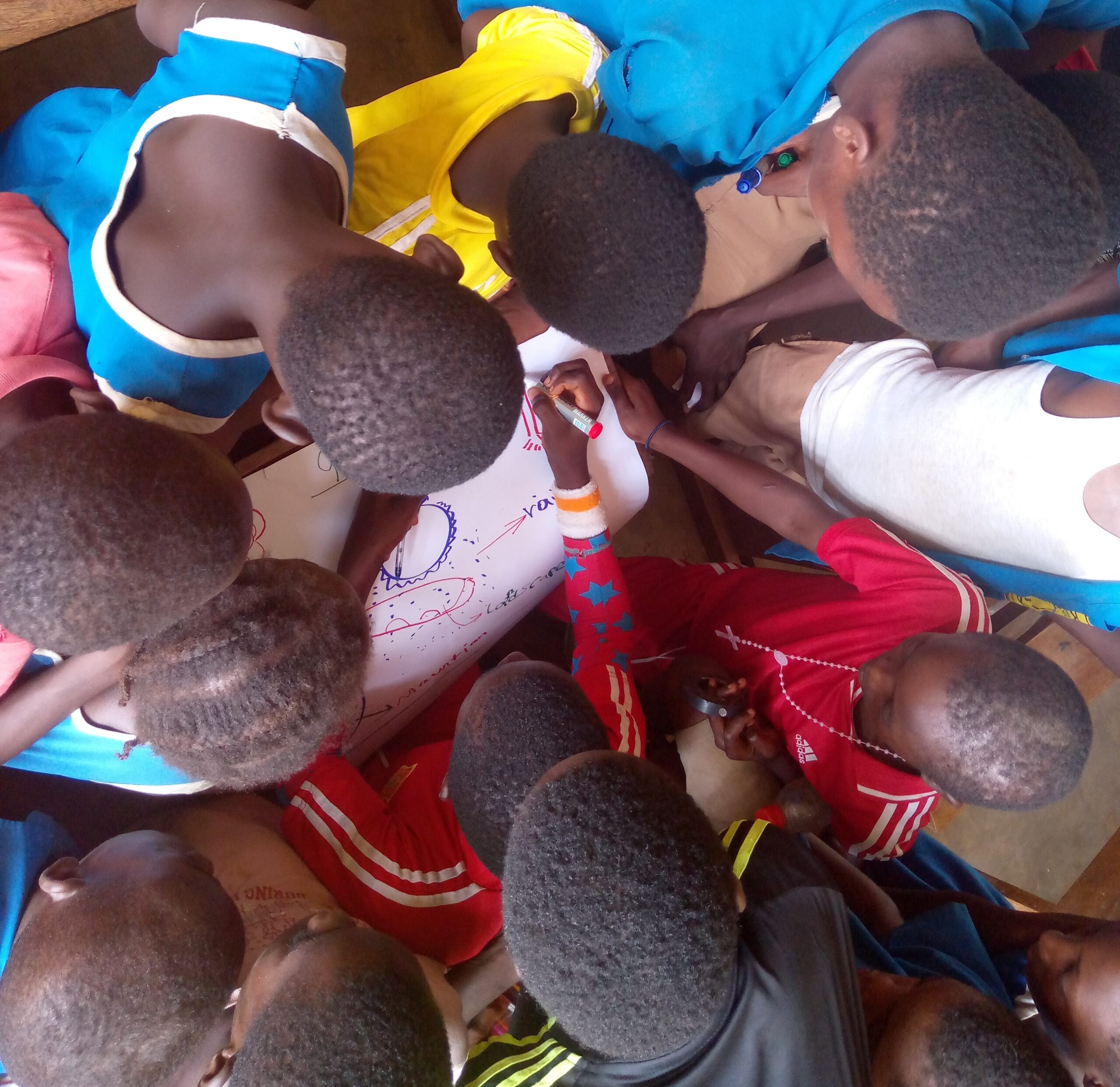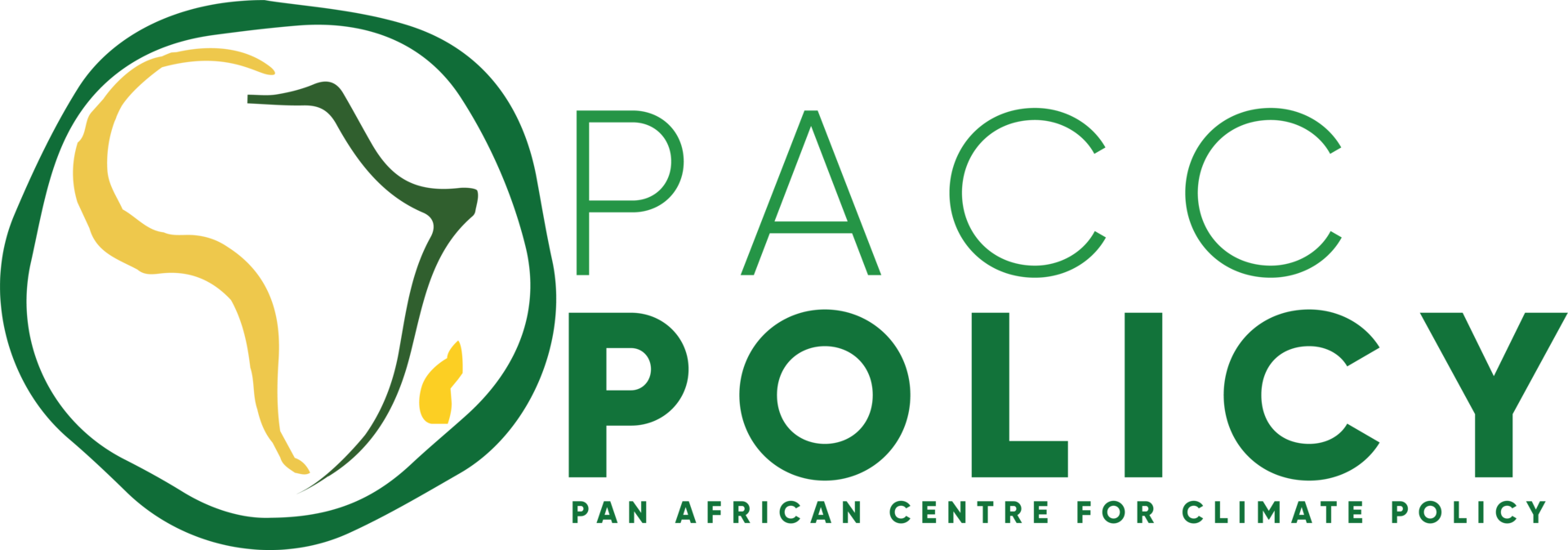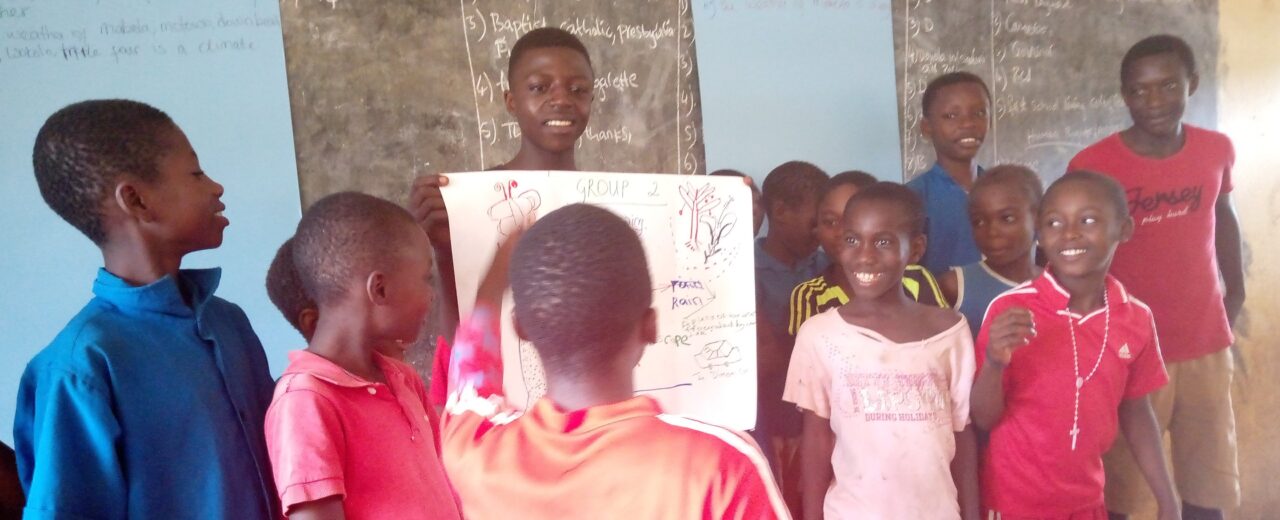 A SEEDLING TO EMPOWER ENVIRONMENTAL EDUCATION
A SEEDLING TO EMPOWER ENVIRONMENTAL EDUCATION
Environmental degradation in Cameroon
Our youth are inheriting the environmental degradation of this planet. It is our job to provide them with the resources they need to combat global issues of climate change. It is imperative that we increase awareness and build capacity in the younger generations for climate change mitigation, adaptation, and impact reduction.
Necessity
Environmental education and sustainability for children and communities in Cameroon
Activity
PACC Policy is providing environmental education resources for school children.
Countable effort
Children will grow up with an awareness of environmental issues and sustainability practices to support climate change mitigation locally and globally.
Result
Youth will attain an awareness of climate change issues and will develop tools for solving them.
Systemic effect
By educating the youth, they can be involved in climate mitigation discussions and solutions, and can educate their parents and communities as well.
Background
Africa is the continent most affected by “climate change despite contributing to just 3% of total global carbon dioxide (CO2) emissions. With a high vulnerability to climate change and poor preparation for adaptation to climatic shocks, it is the least climate-resilient continent in the world.” Deforestation, air pollution and loss of biodiversity are some of the biggest environmental issues Africa is currently facing. In Cameroon, roughly 70% of the population relies on agriculture as their primary source of income. About 2 million people live in drought-affected areas, causing mass displacement. Food insecurity has become a major issue in many regions. Cameroon lost about 1.5 million hectares of forested area, between 2001-2020. At this rate, climate change could cause a decrease in GDP of about 10% by 2050, resulting in another 1.3 million people forced into poverty. These issues have caused intercommunal conflict in Cameroon, “displacing thousands inside the country and forcing more than 30,000 people to flee to neighbouring Chad”. “The climate crisis is a human crisis; we’re seeing it in … so many parts of the world where we have displaced communities. In fact, 90% of refugees are coming from climate vulnerable hotspots.”
The good deed
Through providing children in Limbe, Cameroon with seedlings and environmental education, we will equip them with the resources they need to combat climate change issues in their community. Children will receive hands on education through planting seedlings and caring for the plant nursery. We will educate the youth on sustainable livelihoods, the environment, its problems, and the conservation and protection of their land. This project will provide these youth with the education they need to be involved in climate change conversations, and to make the changes needed in their communities. They will be empowered and inspired to teach their elders, and address the growing concerns of the climate crisis. Children will be provided with opportunities to convert their ideas into creative action. The consciousness of students will be redirected towards environmental-friendly attitudes and actions, and schools will be engaged in promoting environmentally sustainable practices.

About Limbe, Cameroon
Yaoundé
is the capital of Cameroon
Population
Urban agglomeration of Yaoundé
4,5 million
Cameroon total
close to 28,65 million
(2023)
The GDP per capita in Cameroon
5,832 CAD$
GDP represents 0,02% of the world economy.
HDI
0.576
ranking 151st of 191 countries
(Report 2022)
Limbe is known for his black sand beaches. Lowland gorillas and other primates are rescued and rehabilitated in the Limbe Wildlife Center.
About the organization and further information

Pan African Centre for Climate (PACC) Policy
Website
Further information and source
- • Nguyen, Lei, 2022. 5 Biggest Environmental Issues In Africa In 2022. Earth.Org, Africa.
- • World Bank Group. November 2, 2022. The Reality of Climate Change in Cameroon. Video.
- • United Nations., December 10, 2021. Climate change fuels violence and mass displacement in Cameroon
- • Deforestation statistics for Cameroon
- • Deadly clashes over scarce resources in Cameroon force 30,000 to flee to Chad




